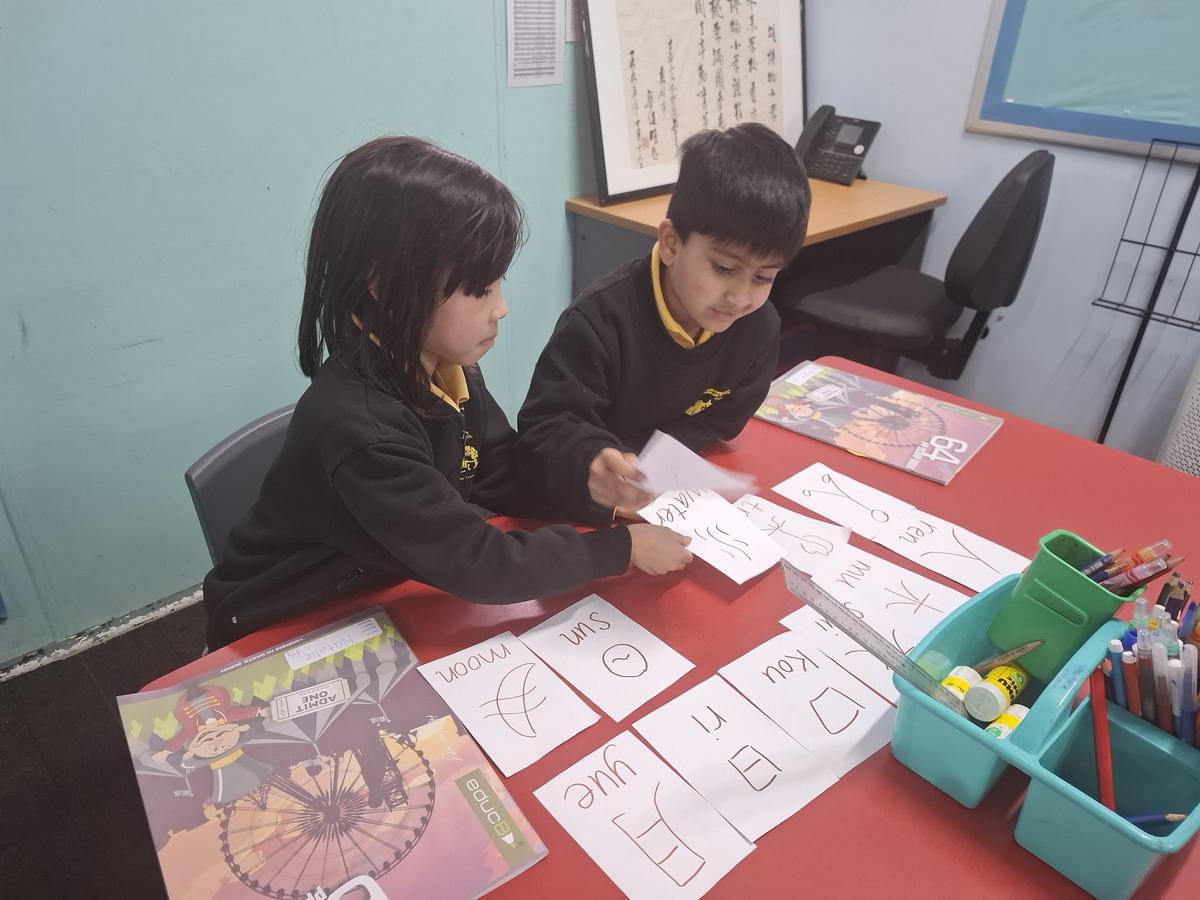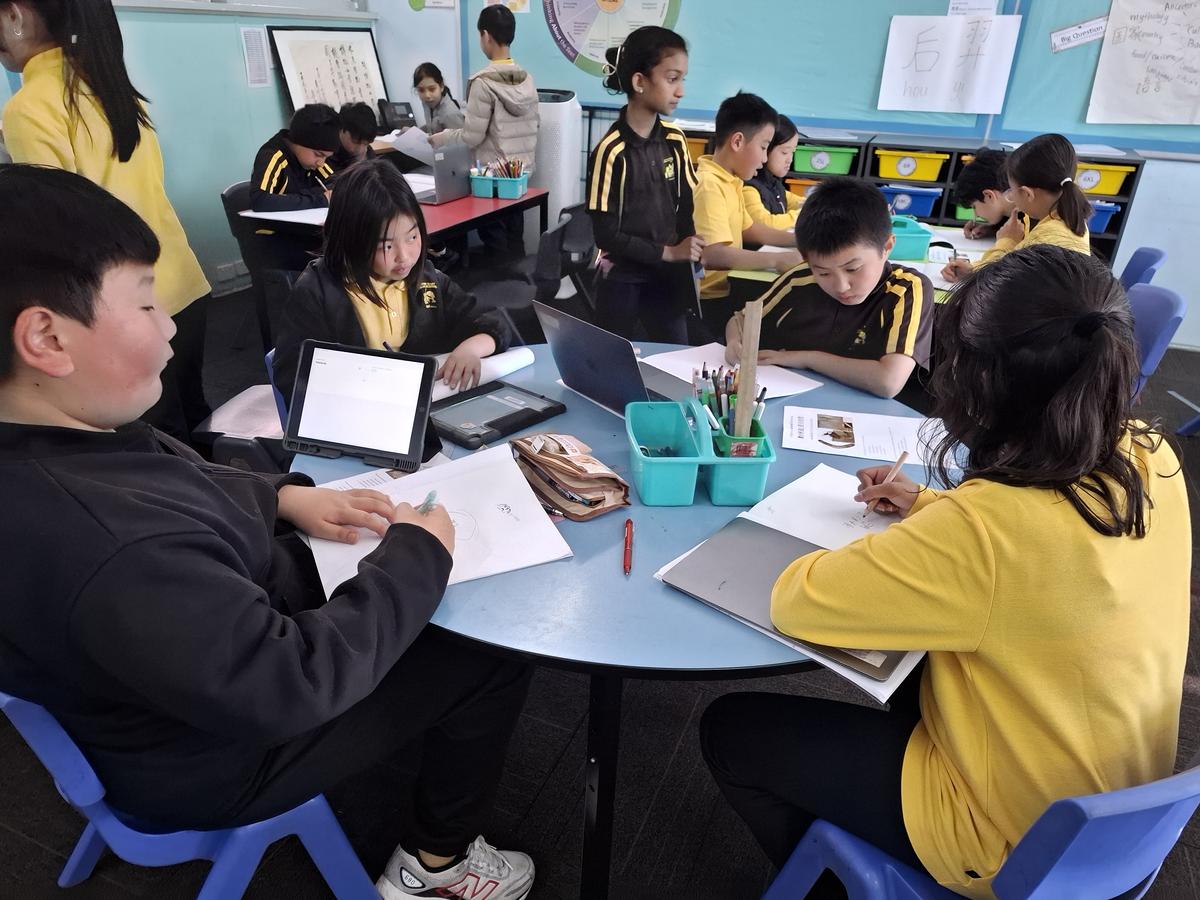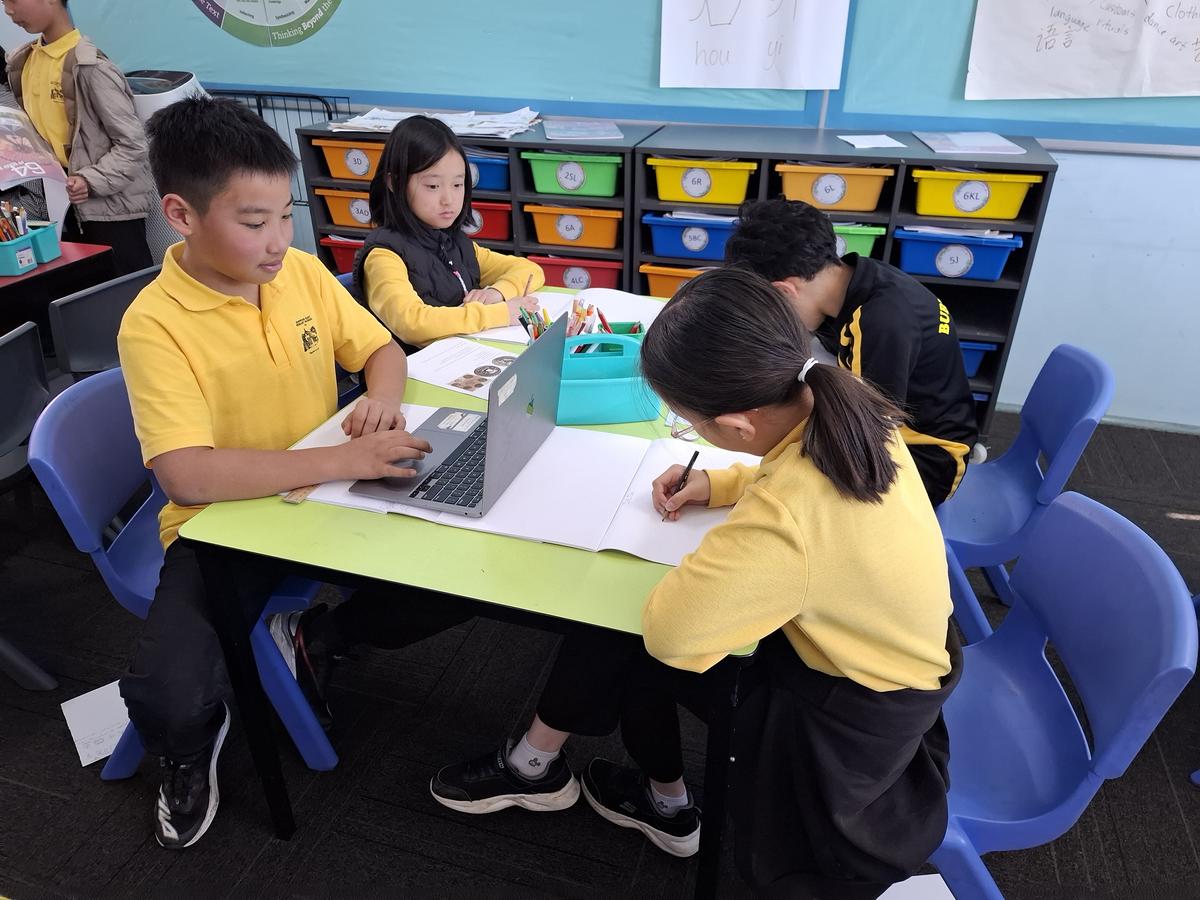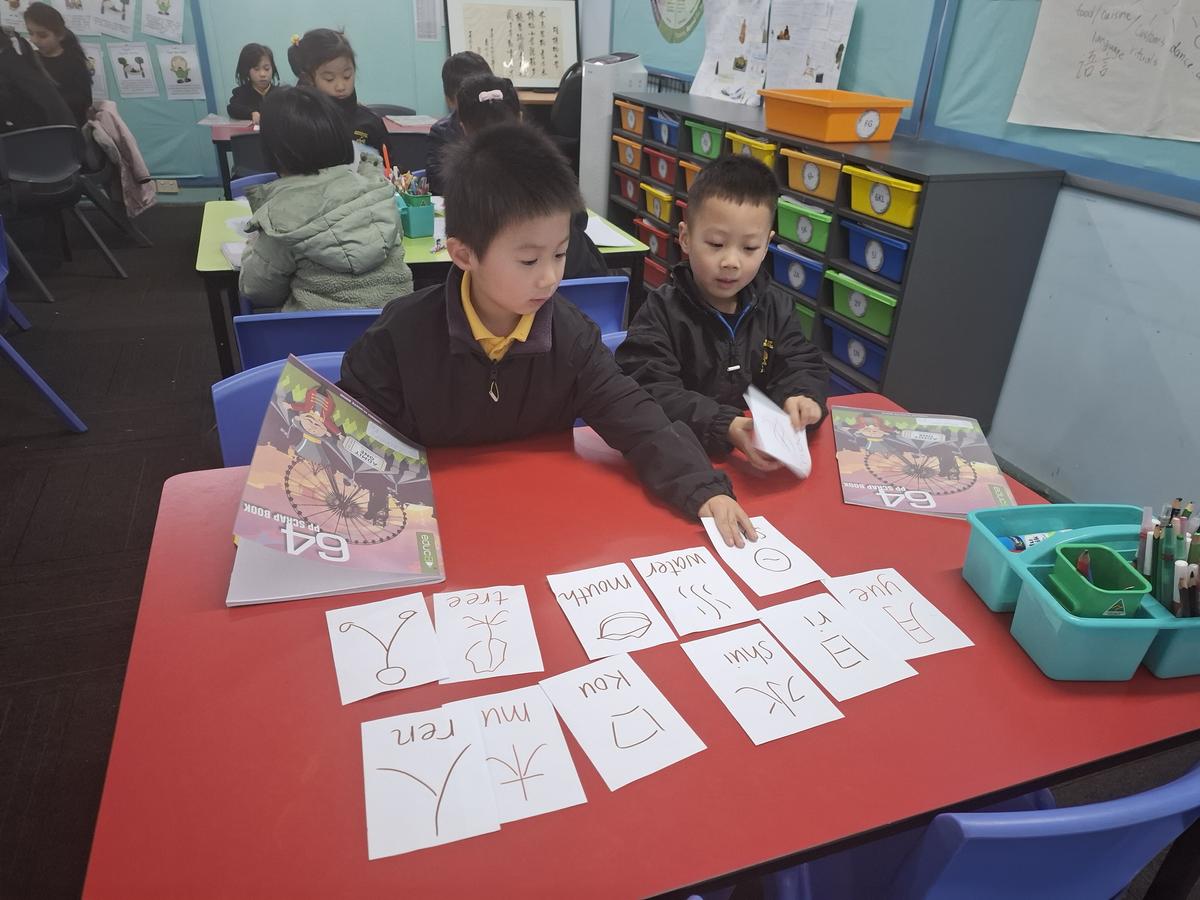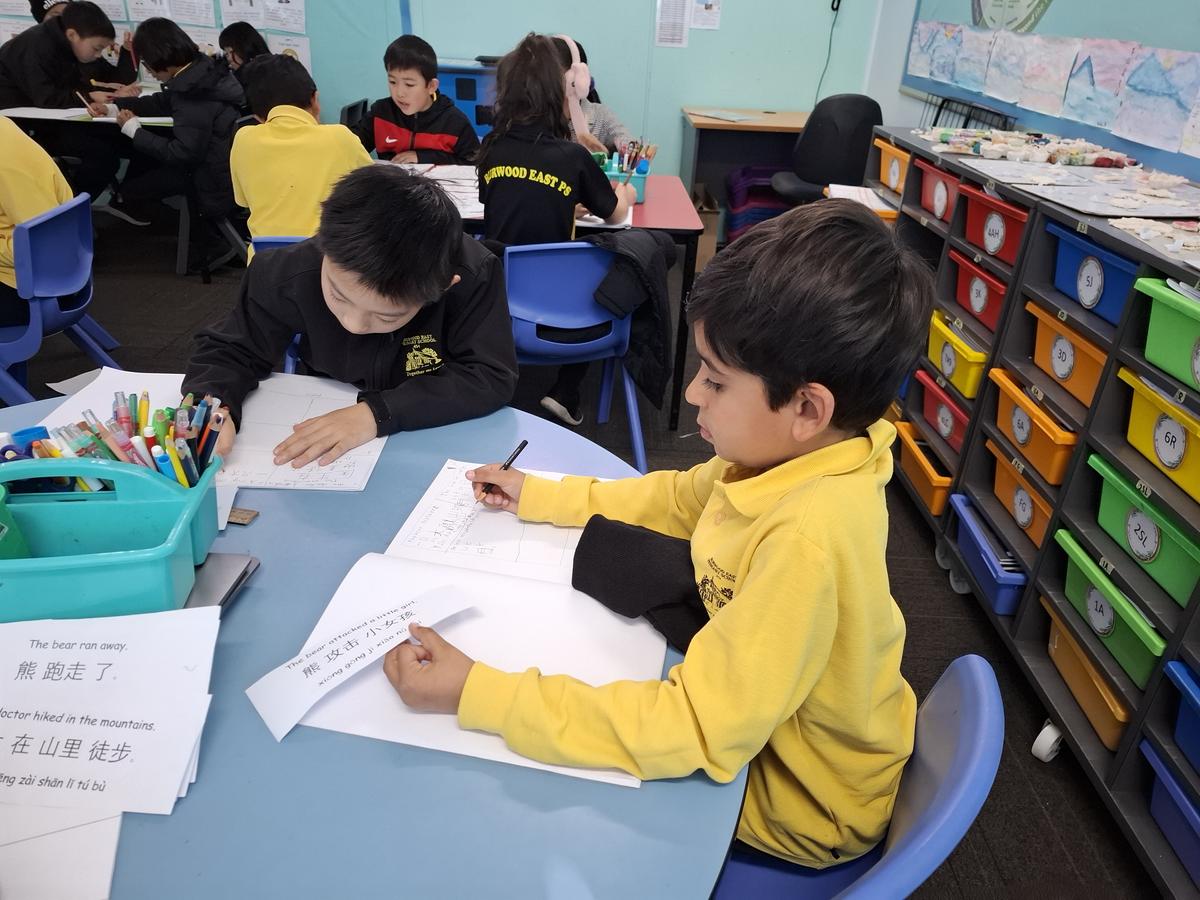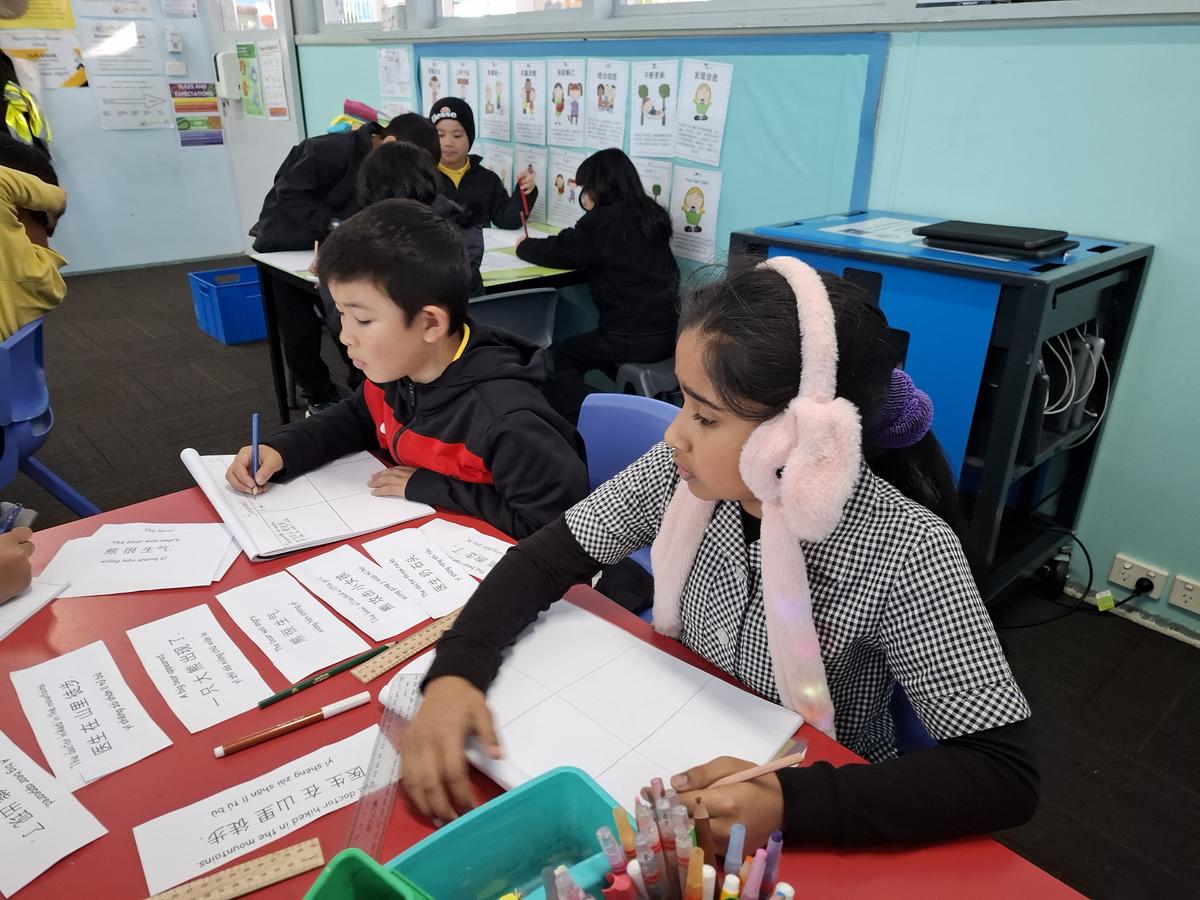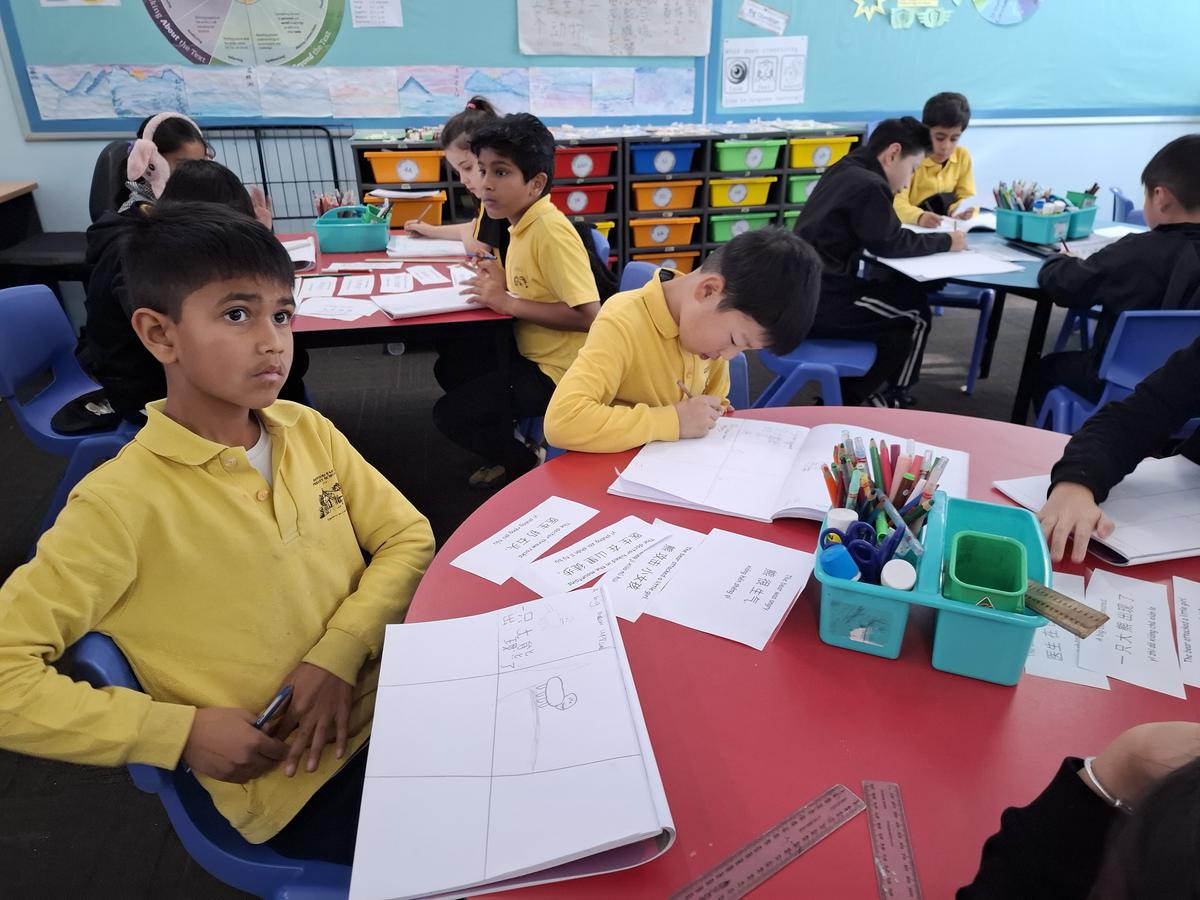Mandarin
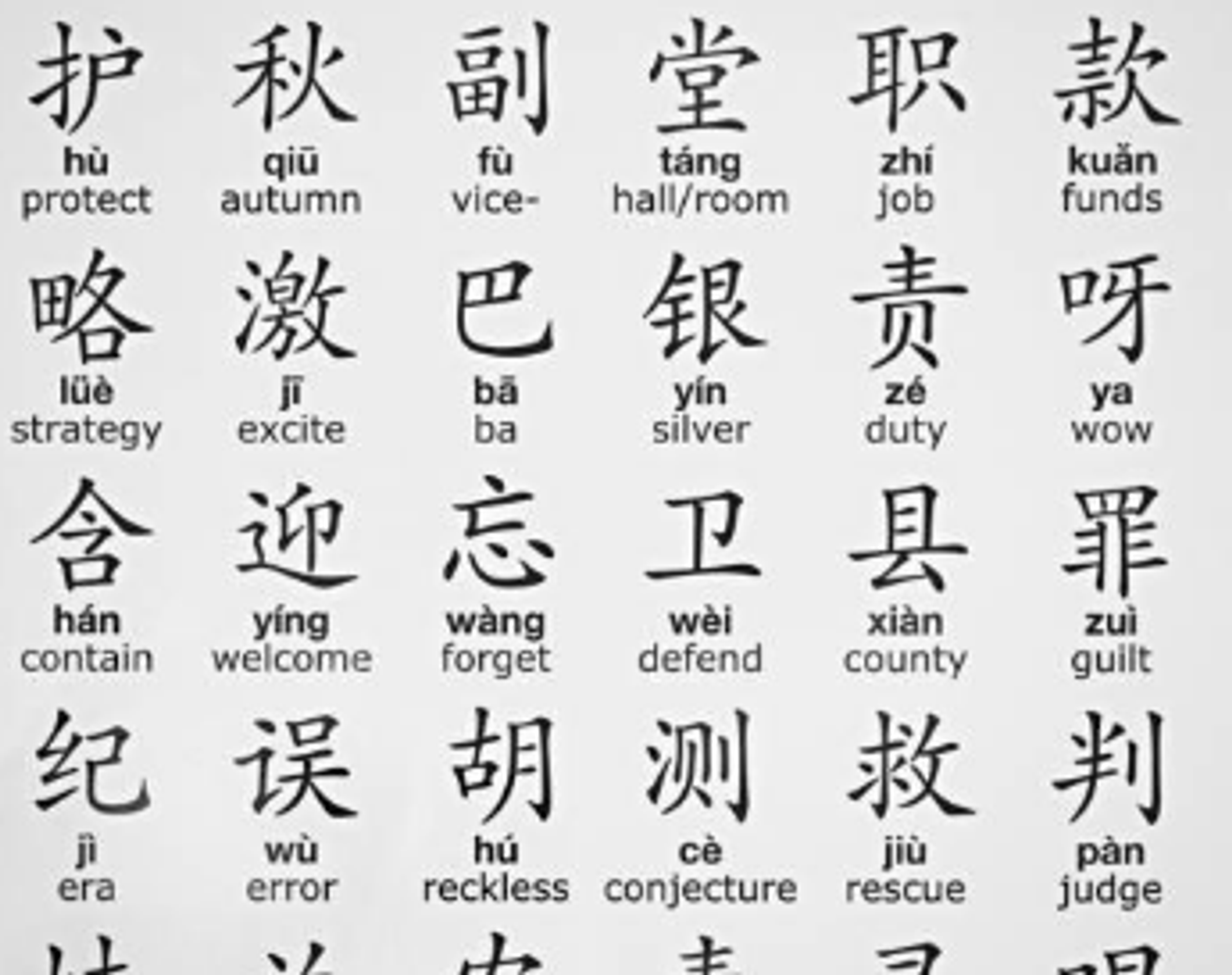
This term, students across all year levels are exploring the fascinating theme of archaeology, which beautifully connects language, history and culture. Here’s a peek into what your child will be discovering and creating through our inquiry-based approach.
Foundation Years: Discovering Chinese Language and Culture
Our youngest learners will explore the theme "I am an Archaeologist" over nine fun-filled sessions.
They will:
- Learn simple greetings and country names to build foundational vocabulary.
- Explore Chinese pictographic characters, understanding how images can represent objects and ideas.
- Listen to Chinese legends and historical tales, retelling stories and discussing artefacts like pots and coins.
- Practice describing objects and matching words with pictures, boosting their confidence in speaking and listening.
Years 1 & 2: Exploring Language Through Time
Students will delve into:
- Basic conversational skills with greetings and country names.
- The evolution of Chinese pictographic characters, discovering how ancient symbols represent ideas.
- Engaging activities like storytelling, creating timelines of cultural or linguistic change, and matching words to artefacts.
- The culmination will be a ‘Language Through Time’ book showcasing their learning and appreciation for Chinese history and language.
Years 3 & 4: Connecting Heritage, History, and Identity
In these years, students will:
- Create a ‘My Story’ or ‘Language Portrait’ book to express their personal backgrounds.
- Explore artefacts that represent their identity, such as family heirlooms.
- Investigate historical landmarks and discuss their significance.
- Deepen their understanding of Chinese characters by exploring how they are formed through the six types of 六书 (liu shu) - the six methods of character creation. This will include learning how characters are built from pictographs, ideographs, and other structural forms.
- Compare Chinese and Western naming traditions and explore cultural celebrations.
- Write a simple story about their heritage and artefacts, deepening their understanding of cultural identity.
Years 5 & 6: Deepening Cultural Understanding
Older students will:
- Imagine themselves as archaeologists, documenting their discoveries in creative diary entries.
- Reflect on how archaeology relates to cultural identity and heritage.
- Compare traditional Chinese medicine with Western and Aboriginal practices through research and discussion.
- Examine famous Chinese landmarks and write short essays about their significance.
- Explore themes and characters in Chinese folktales, appreciating their cultural uniqueness.
- Explore the advanced principles behind Chinese characters, including the six methods of character formation (六书), and analyse how these methods apply to complex characters.
Here are some of the inquiry questions from Years 5 and 6 students:
"What does the word “History” mean, and why not call it “Herstory”?" - Kingley
"What created the world? Why are we learning history?" - George
"Where do West Africans get inspiration from when they create clay bodies?" - Ridhima
"With scientific evidence, why do people still believe in the sun and moon gods?" - Max
"Why do people have conflicts when it comes to their historical beliefs?" - Austin
"How do archaeologists know where to dig and how to study history from the items they find?" - Aarya
"How can you become an archaeologist, and what tools do they use?" - Insiya
"Why do people pass down history?" - Tina
"What can we learn from archaeologists?" - Violet
"Why do people believe in religions?" - Bari
"Why are ancient items so valuable?" - Abdul
"Who are the superheroes? Do we have new superheroes added to mythology?" - Malek
"How do archaeologists identify the age and era of ancient artifacts?" - Silvia
"What is the world’s oldest artifact?" - Jason
"Why do humankind worship gods, and how do humans exist in the world?" - Leona
"How do archaeologists identify fossils and artifacts from a plot of staff?" - Lina
"Why doesn’t the whole world follow one religion?" - Zoe A
"Do different time zones affect the date of discoveries?" - James
"Why do we need to learn about artifacts and history?" - Kevin
"How do archaeologists earn money, and how much do they get?" - Milla
"Why do we have different languages?" - Amy
"What is the origin and meaning of the word “Archaeology”?" - Anyan
"How do archaeologists identify artifacts?" - Cynthia
"Which country has the most artifacts, and which is the most valuable artifact?" - Eliot
"What do archaeologists do, and is their job hard?" - Sid
We believe this immersive approach will inspire curiosity and foster a deeper appreciation of Chinese language, history, and culture.
We look forward to seeing your child's growth and enthusiasm throughout this exciting term!
Thank you for your continued support.

